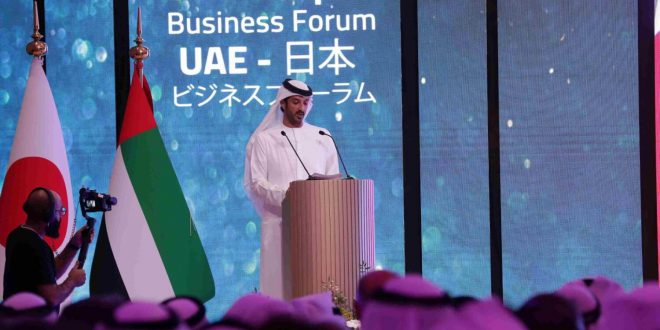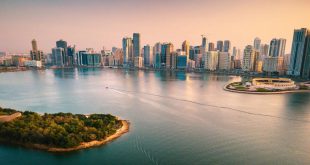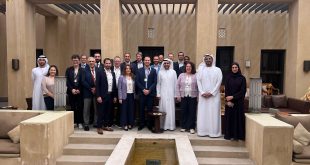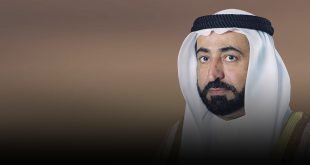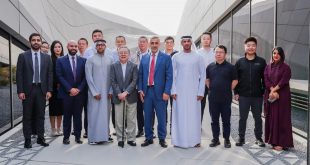The UAE President, His Highness Sheikh Mohamed bin Zayed Al Nahyan, and Japanese Prime Minister Fumio Kishida, on his first state visit to the UAE, took bilateral relations to new heights with the exchange of several memoranda of understanding (MoUs) and agreements.
Building upon the historic ties of 50 years, and the UAE-Japan Comprehensive Strategic Partnership announced last year, the new pacts of cooperation covered areas of energy, space, startups, education, and climate action among others.
“Our two countries enjoy a deep and historic bond and today we explored ways to further strengthen our Comprehensive Strategic Partnership and support sustainable global growth and stability,” Sheikh Mohamed said.
Kishida noted the meeting with Sheikh Mohamed involved discussions on taking the bilateral cooperation to a new level for the next 50 years. “In the future, we intend to further expand cooperation in the fields of clean energy, green materials, semiconductors, batteries, space, and other advanced technologies as well as startup, medical and healthcare, education and cultural exchange.”
“In the future, we intend to further expand cooperation in the fields of clean energy, green materials, semiconductors, batteries, space, and other advanced technologies as well as startup, medical and healthcare, education and cultural exchange.”
While a couple of deals were exchanged at Abu Dhabi’s Qasr Al Watan in front of the two leaders, as many as 23 agreements and MoUs were inked at the UAE-Japan Business Forum involving government entities and companies.
“Our bilateral relationship has made great strides, including in the areas of startups and space,” Kishida said during the forum.
The MoUs inked at Qasr Al Watan include, between the UAE Ministry of Climate Change and Environment and the Japanese Ministry of Agriculture, Forestry and Fisheries, related to the area of agriculture and fisheries; between the UAE Ministry of Economy and the Japanese Ministry of Land, Infrastructure, Transport and Tourism, related to the field of tourism; in the field of education between the UAE Ministry of Education and the Japanese Ministry of Education, Culture, Sports, Science and Technology; between the UAE Space Agency and the Japanese Cabinet Office; the Japanese Ministry of Education, Culture, Sports, Science and Technology; and the Japanese Ministry of Economy, Trade, and Industry, related to space activities for peaceful purposes. There was a joint declaration of intent between the UAE Ministry of Industry and Advanced Technology and Japan’s Ministry of Economy, Trade, and Industry, related to the establishment of an Energy Security and Industry Accelerator (ESIA). Also, a Japan-UAE Leaders’ joint statement on climate action.
Kishida noted that several measures have been taken last year and earlier this year for ease of obtaining visas to travel to Japan, and more services announced by Etihad Airways to Osaka, will boost air traffic between the two countries.
A decarbonised society
The Japanese Prime Minister said that both countries will work towards realisation of a decarbonised society. “We hope that Japan and the UAE will further strengthen our collaboration and advance our strategic partnership.”
Kishida underlined that Japan intends to promote the Japan-UAE Innovation Partnership Initiative and the Global Green Energy Hub initiative. “Let us embark on a joint global green journey that will extend across the Indo-Pacific and to the rest of the world. The Japanese government will actively support the promotion of investment between the two countries. And I hope that the UAE’s public and private sector leaders will take advantage of Japan’s strengths to achieve economic diversification and industrial development for the next 50 years.”
Other deals inked involved Adnoc, Masdar, Department of Economic Development, Emirates Global Aluminium, KEZAD Group, Abu Dhabi Exports Office, M42, PureHealth, Rebound, AD Ports Group, Emirates Steel Arkan, Sharjah National Oil Corporation, UAE Chambers, Mohammed Bin Rashid Space Centre, with entities based in Japan. The pacts covered key sectors including sustainability, space science, technology, the environment, renewable energy, transportation, healthcare, infrastructure, industry, and others.
Strategic cooperation
Meanwhile, Abdulla bin Touq Al Mari, Minister of Economy, pointed out that the two countries have built a “pioneering example of strategic cooperation” over the past 50 years. “The total trade exchange between the two countries amounted to $51.7 billion in 2022, while non-oil trade exchange reached $14.7 billion in the same year, of which non-oil imports to the UAE accounted for $12 billion. The average non-oil trade between the two countries during the past decade amounted to $14 billion annually, except 2020, which witnessed the spread of the pandemic. It contributed to making the UAE your seventh-largest trading partner in the world, and established Japan’s position as our eighth-largest.”
The minister noted that the latest figures show that the UAE is Japan’s top trading partner in terms of exports and imports in the Arab world, absorbing 40 per cent of Japan’s exports to the region and providing 39 per cent of Japan’s imports from the region.
“In 2022 alone, the UAE imported $12 billion worth of goods from Japan. On the investment front, the figures show another strong aspect of our bilateral ties. The UAE is the source of 42 per cent of FDI inflows to Japan from the Mena region, and the stock value of Japanese investments in the UAE market is estimated at $14 billion with 10,000 Japanese companies or agencies operating here in various sectors, such as technology, renewable energy, transportation, and health care.”
Al Mari said tourism exchanges between the UAE and Japan are also witnessing continuous growth. “Air traffic reached nearly 90 flights per month, operated by the UAE’s national carriers. The total number of Japanese visitors to the UAE reached about 56,000 in 2022, up 26,000 from 2021. This reflects the growing tourism movement and air connectivity between the two countries.”

